Due to its high dependency on international trade, Singapore is highly susceptible to global protectionism and a hard landing of the Chinese economy.
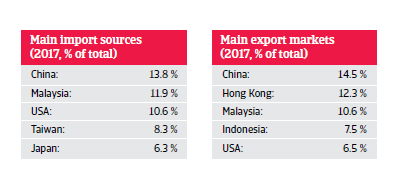
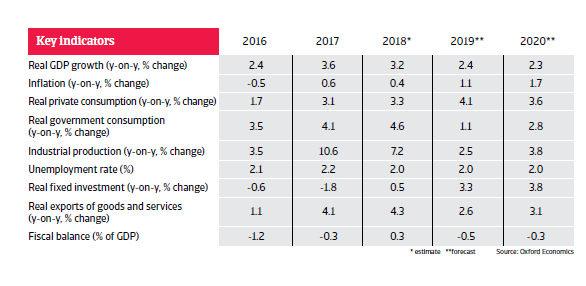
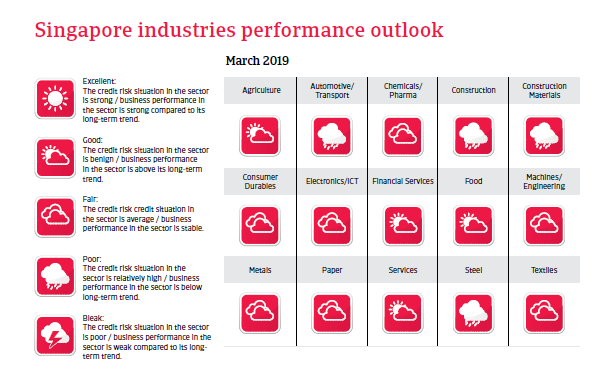
Political situation
Stable political situation
The People’s Action Party (PAP) has been in power since Singapore’s independence in 1965. The PAP is business-friendly but, compared to western standards, personal freedoms are limited. The opposition is weak and fragmented and has very few opportunities to present itself in public. In the last general elections held in September 2015 the PAP won nearly 70% of the votes, securing 82 of the 89 seats in parliament.
Singapore’s population consists of ethnic Chinese (77%), Malays (14%), Hindu Tamil Indians (8%) and 1% of other nationalities. Income distribution is relatively equal and, in contrast to neighbouring Malaysia, racial tensions are negligible. The biggest potential threat to security is the possibility of terrorist attacks by Muslim extremists, either indigenous or from abroad.
Economic situation
Lower growth in 2019 and 2020, but strong fundamentals remain
Singapore’s income per capita and level of development meet OECD standards. This city state is the main transport and financial service hub for Southeast Asia, but its economy is somewhat vulnerable because of its high reliance on demand from its trading partners and the focus on specific sectors such as electronics and pharmaceuticals. Nevertheless, for a small state the economy is relatively well diversified. Singapore’s banking sector is healthy and adequately supervised.
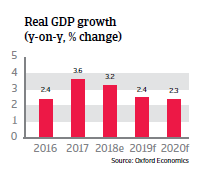
The city state´s long-term growth strategy is to move away from being just a trade, transport and financial hub and to become a centre of high-tech industry. This strategy has started to bear fruit in the bio-medical sector, and the government has recently begun to extensively promote business digitalisation.
In 2018 Singapore’s economy benefitted from robust growth in global trade. Exports and industrial production recorded increases of more than 4% and 7% respectively, while private consumption remained strong. However, economic expansion is likely to moderate in 2019 and in 2020, as both global trade growth and Chinese import demand have cooled down.
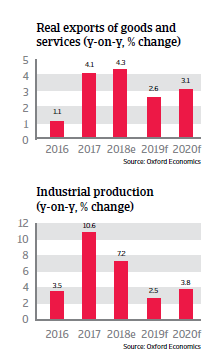
Due to its high dependency on international trade and integration in the Asian supply chain, the Singapore is susceptible to risks stemming from an escalation of the Sino-US trade dispute and a hard landing of the Chinese economy.
However, any destabilising effect should be limited due to Singapore´s economic resilience. The city state continues to be one of the strongest countries in the world in terms of sovereign risk and macroeconomic fundamentals. Therefore, and due to the ample foreign exchange reserves and adequate monetary management of the Singapore Monetary Authority, the exchange rate is unlikely to be affected by changing patterns of international investment.
相关资料

8.32MB PDF